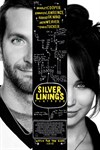Dan Culberson
Dan Culberson is an author, TV performer, editor and publisher who has been writing about culture, politics and religion since 1994. He was graduated Phi Beta Kappa with a B.A. in English literature in the Honors Program from the University of Colorado and was president of the Pi Kappa Alpha fraternity. He was born in Carmel, CA, but grew up all over the U.S. and Europe, living in Monterey, CA: Medford, OR; Lawton, OK (twice); Pampa, TX; Minot, ND; El Paso, TX; Tacoma, WA; Kennewick, WA; Erlangen, Germany; Lebanon, MO; Colorado Springs, CO (where he attended high school); Boulder, CO (where he attended college and now lives); and Heidelberg while serving in the U.S. Army and Sindelfingen, Germany while on assignment for IBM. He served three years in the U.S. Army, retired from IBM after 25 years with a career in publications and is a writer, editor and publisher who came of age in the Sixties, which he remembers quite well. He was named a Boulder Pacesetter in 1985 by the BOULDER DAILY CAMERA in the first year of that program and was a film reviewer from 1972 to 2014 for newspapers, magazines, radio stations and TV programs.
Homepage: http://c1n.tv
Posts by Dan Culberson

“Silver Linings Playbook” Contrived and Over the Top
Feb 6th
“Contrived and Over the Top”
“Hotshots” looks at a movie!
Silver Linings Playbook has already won some awards and will likely win more, but some of you might be disappointed in this so-called “dramedy” about two troubled souls.
Bradley Cooper stars as Pat, he is in a psychiatric facility in Baltimore, where he has been ordered to stay by a judge after Pat went home, found his wife Nikki in the shower with another man, and went berserk, which is now referred to as “the incident.”
While there, Pat has been diagnosed as being bipolar with mood swings, but we see him on the phone talking to someone, and he says, “I’m better now, and I hope you are, too.”
After being in the facility eight months, Pat’s mother takes him out and drives him back home to Philadelphia, where Pat will now live with her and his father, played by Robert De Niro.
You see, Nikki has left Pat, sold their home, and now has a restraining order against him, but Pat plans to get in shape, get his old job back as a substitute history teacher, and get Nikki back, too.
Pat’s mother tells him that she didn’t tell his father that she was bringing Pat home and to take things easy, because his father lost his job and is now a small-time bookie, who is also a fanatic obsessed with the Philadelphia Eagles professional football team.
In fact, Pat’s father is such a fanatic that he had his own “incident” in the past and is now banned from ever attending another Eagles home game.
Meanwhile, Pat is invited to Sunday dinner by his friend Ron, who is married to Nikki’s friend, Veronica, they just had a baby, and Ron is feeling crushed.
Veronica’s sister, Tiffany, played by Jennifer Lawrence, is also at the dinner, and she has problems of her own, having recently lost both her husband and her job. Her husband was a policeman who was killed on duty, and she lost her job for reasons I won’t go into here.
Well, you can guess that Pat and Tiffany will have a troubled relationship, that they will have many obstacles to overcome, but not that the climax is a big dance contest, which substitutes for the Big Game at the end of many movies.
Silver Linings Playbook is too contrived and over the top.
I’m Dan Culberson and this is “Hotshots.”

Stop Saying “Take a Look”!
Jan 30th
The three most overused and unnecessary words you ever hear on television are “Take a look.”
Take a look at this.
First of all, except for blind people who only listen to the television set, we are already looking at it, and so people on television don’t have to tell us to look at it!
Take a look at this.
And for all we know, blind people might get offended by being reminded all the time that they can’t see anything whenever told to “take a look.”
Take a look at this.
Second of all, what does saying “Take a look” add that a simple “Look” doesn’t convey?
Take a look at this.
And third of all, the expression in either its shortest form of “Look,” its longer form of “Take a look,” or even its longer forms of “Take a look at this,” “Take a live look,” or “Taking a look at the temperatures” are all just a lazy way of introducing what the meteorologist, traffic reporter, or any other on-camera person wants to talk about next. Much worse is “take a listen.”
Take a look at this.
I first became aware of this lazy crutch of an expression back in the past when I would attend a presentation by a programmer I worked with, and he would mangle it by saying “Take and look” instead of “Take a look.”
Take a look at this.
For example, he would have a visual aid displayed before us and say something like, “If we take and look at the coding, we can see how the reverse Polish notation affects all the lines that follow.”
Take a look at this.
Then I began noticing that the weather girl on the local news that I watch every morning was saying “Take a look” much too often and even more much too unnecessarily.
Take a look at this.
Then I began to notice that the traffic reporter who would follow her weather report was using “Take a look” in his reports, too, and sometimes even saying “Take a look” twice in the same sentence.
Take a look at this.
And then I began to notice that national reporters on television and hosts on national talk shows were being lazy and using the expression, which, when you think about it, doesn’t add anything to the introduction of whatever follows that we are being told to look at.
Take a look at this.
Rather than saying “Take a look at these temperatures,” the weather girl could simply tell us that the temperature in Denver is a pleasant 65 degrees, compared with the temperatures in Los Angeles, Chicago and New York City.
Take a look at this.
Rather than saying “Take a look at the traffic map,” the traffic reporter could simply say “The traffic is heavy on the Interstate highway, so you might want to avoid it.”
Take a look at this.
And rather than saying “Take a look” when a national reporter or a talk-show host wants to introduce a piece of video footage, a simple description of what is going to be shown would suffice or even a simple “Play it” when the person might not know what is about to be shown.
Take a look at this.
Now that I have made you aware of this excessive and unnecessary overused expression on television, start counting the number of times you hear it said, and if you use social media to follow either the person you hear say it too much or the program on which you heard it said or even the network on which the person or program appears, write using either of the more popular social-network tools directly to the person, program, or network and encourage them to stop using that now offensive, unnecessary and overused expression.
Take a look at this.
Unfortunately, this might turn out to be a lost cause. Emphasis on good language and effective communication might have been lost ever since the Baby Boomers became a major influence in society in the Sixties.
Take a look at this.
I don’t watch religious shows on television, and so I don’t know if televangelists use the expression in their sermons or requests for money, but I wouldn’t be surprised if they did, because I am hearing the expression almost every time I turn on the television.
Take a look at this.
The same goes for politicians.
I rest my case.

“Rust and Bone” Is French Murkiness
Jan 29th
“French Murkiness”
“Hotshots” looks at a movie!
Rust and Bone is a French film, and sometimes that is all that needs to be said, but in this case that describes only half of it.
It stars Marion Cotillard, who won the Academy Award for Best Actress for the 2007 La Vie en Rose, in which she portrayed French songstress Edith Piaf.
In this film, she plays an orca trainer at a Marineland in the south of France who has a tragic accident.
When the film opens, we see a man named Ali traveling with his five-year-old son, Sam, on a train to southern France.
Once they arrive, they go to his sister’s house, whom he hasn’t seen in five years, where she is living with another man, Richard.
When Anna gets home from work as a store clerk, Richard says to her, “Some reunion. Not kissing your brother?”
We don’t know the reason that Ali and Sam have moved to stay with Anna and Richard, but it could very well be that Ali has fallen on hard times.
Ali gets a job as a bouncer at a nightclub, and one night he meets Stephanie, rescuing her from a fight and afterwards taking her back to her home, where he treats his bloodied hands by putting them in ice.
Then Stephanie has an accident where she works at Marineland, and she loses both her legs below the knees.
About four months later, she calls Ali, and he comes to visit her. She now gets around by a wheelchair, and Ali takes her out to the beach, where he goes swimming and convinces her to go swimming, too.
So, the rest of the film is about the growing relationship between these two people. She is physically crippled, and he is emotionally crippled.
Ali changes jobs, and eventually he makes extra money by fighting in underground kickboxing fights, which he is successful at and which fascinates Stephanie.
Stephanie gets some artificial legs and is able to get around more easily, but Ali gets into trouble where he is working as a security guard, and he has to leave town.
However, even though Cotillard has received praise for this film, you might ask what the point is, especially with the phony ending.
Rust and Bone might be to your liking, or you might think it is just French murkiness.
I’m Dan Culberson and this is “Hotshots.”



![5[1]](http://c1n.tv/wp-content/uploads/2012/12/51.jpg)




















